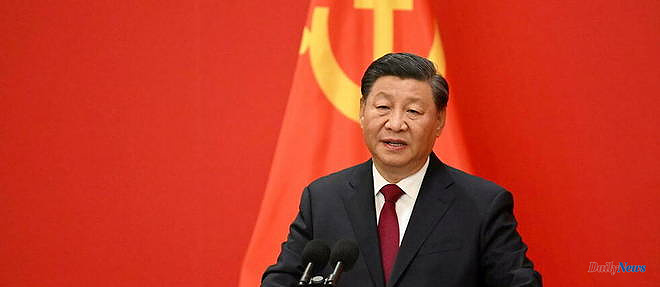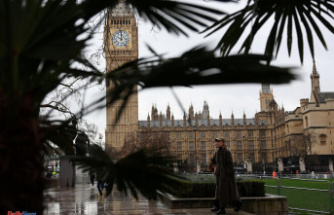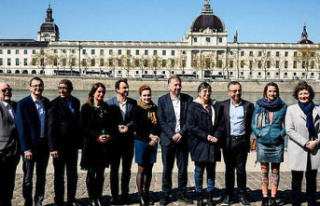The response is immediate. Beijing sent warships to waters around Taiwan on Thursday, shortly after deploying an aircraft carrier and promising a "determined" response to the meeting between the leader of the self-governing island and the speaker of the House of Representatives. American in California, announced the Taiwanese Defense.
Taiwan President Tsai Ing-wen, from a party that traditionally advocates for the island's independence - an absolute red line for China - hailed Washington's "unwavering support" for Taiwan during a Wednesday meeting near Los Angeles with Speaker of the House of Representatives Kevin McCarthy. But Beijing has always threatened a response if such an interview took place and deployed an aircraft carrier near Taiwan hours before the meeting.
Three more warships were detected Thursday morning in the strait separating China from the Democratic Autonomous Island, Taiwan's Defense Ministry said. An anti-submarine helicopter also passed through Taiwan's air defense zone, the ministry added. And China has deployed coast guard vessels for exceptional patrols which Taipei has protested.
The communist regime considers the self-managed island for more than 70 years as one of its provinces to take back, favoring "peaceful reunification", but without excluding the use of force. In the name of its "one China" principle, no country is supposed to maintain official ties with Beijing and Taipei at the same time.
Last August, Beijing launched unprecedented military maneuvers around Taiwan when Democrat Nancy Pelosi, Kevin McCarthy's roost predecessor, visited the island. The response at this stage to the meeting with the American number three is not comparable. However, it puts Taipei on alert. Taiwan's Defense Minister called the deployment of Shandong, one of the two Chinese aircraft carriers, "sensitive".
"When an aircraft carrier goes out, there are usually aircraft takeoffs and landings," said Chiu Kuo-cheng, adding that no such maneuvers have been observed so far. "We continue to monitor," he warned reporters. Asked about the possibility that this deployment is a prelude to Chinese military maneuvers, Chiu Kuo-cheng replied: "We do not exclude this possibility. »
In the United States, Tsai Ing-wen, who was in transit after a tour of Latin America, praised the "unwavering support" of the United States to his island and assured that the Taiwanese were neither "isolated" nor " alone". Only 13 states still recognize Taiwan, including Belize and Guatemala, Latin American countries that the president has visited in recent days to cement the relationship with her few official allies, after a first stop in New York.
In this flammable context, the Republican leader for his part stressed that the relationship between Taipei and Washington was "stronger" than it had ever been "in (his) life". Hours later, China promised "determined and effective measures to safeguard its national sovereignty and territorial integrity." The Chinese Foreign Ministry likened the Tsai-McCarthy meeting on US soil to "seriously mistaken acts of collusion" between the US and Taiwan, according to a statement released Thursday morning.
Beijing further urged Washington to "stop going down a wrong and dangerous path" as French President Emmanuel Macron is on a state visit to Beijing where he is due to meet his Chinese counterpart Xi Jinping on Thursday. Under Tsai Ing-wen's tenure, Taiwan moved closer to the United States. Kevin McCarthy also called for "continuing arms sales to Taiwan", which he said is the "best way" to prevent a Chinese invasion of the island. "It's a key lesson we learned from Ukraine that the idea of simple sanctions in the future won't stop anyone," he told reporters.












